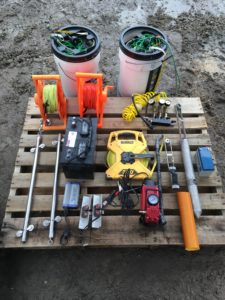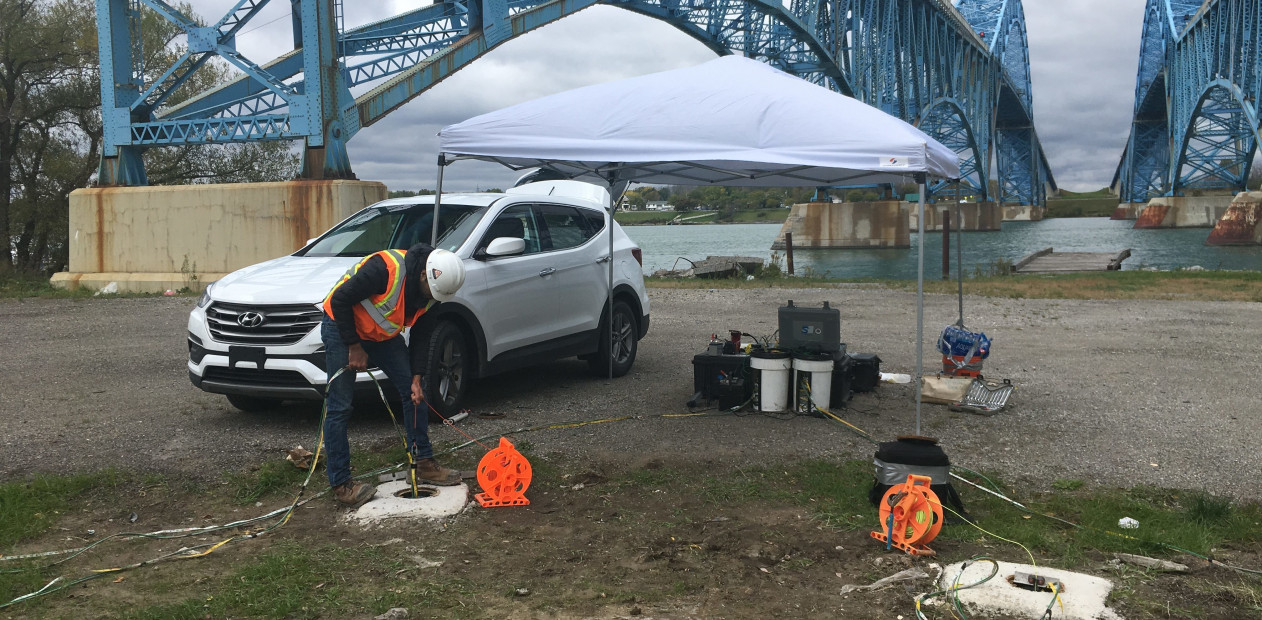
Earthquake Engineering
MRCE is at the forefront of the rapidly changing and growing technical fields of Earthquake Engineering and Engineering Seismology. Our seismic analysis experts have been involved in the development of seismic design criteria for various structures including skyscrapers, bridges, dams, hospitals, commercial buildings, and warehouses for more than 80 years. MRCE performs seismic testing for site characterization. Our expertise in advanced numerical modeling and seismic analysis, together with our unique capabilities in both field and laboratory seismic testing, enables us to address complex challenges in seismically active areas worldwide.
- Site Characterization
 Geotechnical site characterization and assessment of site response to earthquake ground motions is a crucial phase of seismic hazard analysis. Site characterization requires both field and laboratory investigations to identify soil dynamic properties and evaluate a potential hazard.
Geotechnical site characterization and assessment of site response to earthquake ground motions is a crucial phase of seismic hazard analysis. Site characterization requires both field and laboratory investigations to identify soil dynamic properties and evaluate a potential hazard.MRCE field and laboratory services supporting seismic site characterization include:
- Borehole Logging
- Downhole Seismic Testing
- Crosshole Seismic Testing
- Seismic Cone Penetration Test (SCPT)
- Standard Penetration Test (SPT)
- SPT Hammer Energy Measurement
- Resonance Testing of Rock Core Specimens
- Shear-Modulus Measurement in Laboratory Triaxial Test Specimens (Bender Element Method)
- Engineering Seismology
Engineering seismology is principally concerned with evaluating and accurately defining seismic risk, uncertainty, and hazard for earthquake engineering evaluations of development sites. Design rock ground motions are typically developed in a seismic hazard analysis.
MRCE engineering seismology services include:
- Seismic Source Characterization
- Ground Motion Models and Attenuation Relationships
- Probabilistic Seismic Hazard Analysis (PSHA)
- Deterministic Seismic Hazard Analysis (DSHA)
- Design Response Spectra for a Reference Site Condition
- Design Time Histories for a Reference Site Condition
- Site-Specific Response Analyses
Site-Specific response analyses consider how the soil conditions beneath a site will alter earthquake ground motions. A site response analysis provides design ground motions for input to structural analysis. A site-specific response analysis may reduce input ground motions below presumptive Building Code values, and result in construction cost savings.
Following site characterization, MRCE site-specific services include:
- Site Response Analysis
- Acceleration Time-History Selection and Scaling
- Spectral Matching of Acceleration Time-Histories
- Design Foundation-Level Response Spectra Development
- Earthquake Engineering
Earthquake Engineering is the application of engineering seismology investigation findings to define earthquake risk to life, property, and operations. MRCE earthquake engineers have extensive experience and knowledge in providing economical and efficient engineering design to earthquake forces and their effects. These include:
- Seismic Site Classification
- Evaluation of Seismic Design Code Response Spectra
- Seismic Slope Stability
- Soil-Structure Interaction Analysis
- Liquefaction Potential and Impact Analysis
- Evaluation of Ground Improvement Options
- Enhanced Foundations to Resist Seismic Load
- Earth Retaining Structures Design
- Permanent Underground Structures Design
- Peer Review

